Blog
Handling Your Personal Finances On A Cycling Tour
HOW TO PREPARE: An 8 part series to get you ready for your first TDA tour. Click here to read more.
TDA Global Cycling’s tours cross 6 continents and more than 80 countries. As company accountant my work is far more entertaining than that of most bean counters, transacting as we do in 6 major currencies and a host of obscure ones, such as Turkmenistan Manat and Vietnamese Dong.
That said, one of the unique pleasures and challenges of partaking in a TDA ride is you too get to dabble and bargain in the likes of Ethiopian Birr and Mongolian Tugrik. With this in mind, and, depending on where you are cycling, here are a number of best practices to follow in regards to handling your personal finances on the road.
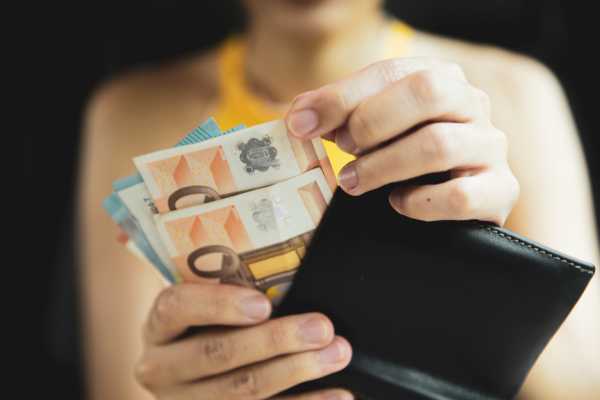
Cycle Touring in the “West”
If your journey is in so called “western” countries, including North America, Australia/New Zealand, Japan/South Korea/Taiwan, and most of Europe, all you should need is a Visa or Mastercard with a Plus or Cirrus symbol on it, a debit card from your bank, a modest amount of cash in US$, Euros, or British Pounds, and a dose of common sense to ensure the security of your valuables. The foreign exchanges you do will typically be in banks or other reputable businesses where the rates offered are posted and within a 1-2% range of each other (the worst rates are typically offered by forex booths at airports and railway stations). ATMs will almost always be available to provide you with local currency.
As on all our tours your expenses will include food the night before rest days and on rest days, snacks and drinks along the way on riding days, spare bike parts if needed, entry fees to touristic sites, and souvenirs. Any visas you may require to enter these countries will likely have been obtained in advance or at an airport upon arrival. Unless you fancy a Michelin starred restaurant, have a weakness for wine and top shelf cocktails, or are tempted by jewelry and other fine items, it is unlikely that you will spend the equivalent of more than $150-200 per week.
Keeping a small stash of cash, smart phone, one of your cards, and a photocopy of your passport well concealed on your person or bike, will normally be all you require to avoid misadventure. However, it is only prudent to also be aware of the reputation a particular location may have in terms of petty crime. For example, while Europe includes many of the world’s safest countries, some favoured destination cities, including Barcelona, Paris, Rome, and Prague are notorious for pickpocketing, especially at train and bus stations, monuments, shopping districts, and other tourist hotspots.
Africa, Asia & Latin America
Some of these rules of thumb change significantly when you venture further “off the beaten path” and into “low and lower-middle income countries”, or the “Majority World”, where cultures and language may differ vastly from your own. This is especially true where poverty prevails, and the temptation of ripping off seemingly wealthy ‘farang’ is hard to resist.
 Genghis Khan is featured on Mongolian banknotes
Genghis Khan is featured on Mongolian banknotes
The basic tenet of keeping your principal valuables (money, passport, credit cards, air ticket, insurance policy, etc.) safe in your daily or permanent bag still applies. For everyday needs you should only have your phone, a small amount of money – perhaps $20-30 in local funds and a $20 bill “just in case” – plus a copy of your passport’s ID page on your bike or person. During coke stops, around the lunch van, and at campsites or hotel check-ins keep your bike, its rack and/or handlebar bag(s), and any daypacks close by and within sight. It also bears reminding that, when you’re away from your beloved two-wheeled companion, a quality lock is a must – while bike theft is rare on our tours, when it does happen it can be devastating for the victim. Mind you, most of the limited bike theft we have experienced on our tours has happened in major European cities.
The almighty US$ is the tender of choice in the developing world for the purpose of exchanging into the local currency; in most locales Euros are also welcomed. Factoring in the possibility of needing hard currency in case of emergency, you should probably bring a minimum of $1000 cash and an average of $500 per month you’ll be on tour, depending on how long you intend to travel in these places. While drinks, snacks and food will usually be cheap, chances are you’ll be paying in dollars for entry visas at many borders, particularly in Africa and Southeast Asia. On the Silk Route you can also expect to pay for LOIs (Letters of Invitation). Note that some banks, forex kiosks and hotels will also only accept bills issued after 2003 as they are more difficult to forge. Ask your bank for crisp new bills to avoid running into this problem.
ATMs would seem the logical source for local lucre, and in many countries they are. However outside of more advanced and tourist-oriented economies such as Thailand, Turkey, South Africa/Namibia/Botswana, and Chile/Argentina, they tend to be mostly located in larger cities, airports and at higher end hotels. So withdraw enough for your stay, but not too much, when you have a chance, before heading off into the countryside. And expect the unexpected – ATMs can be hit and miss, rejecting your card as coming from outside their network, and even eating your card upon occasion. They also serve as breeding grounds for thieves. Skimming, where criminals install counterfeit readers, is a growing concern. Central America is one region where ATMs can be quite “problematic.” Before transacting at an ATM, always check the surroundings for shady characters. Whenever possible choose ATMs affiliated with a country’s primary banks, and if you have an option between an inside or street side ATM, choose the former.
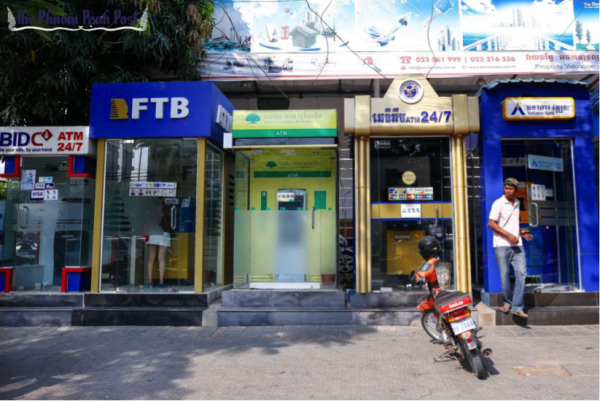 A “bank” of ATMs in Phnom Penh, Cambodia
A “bank” of ATMs in Phnom Penh, Cambodia
Similarly don’t expect your credit card to be accepted outside of better establishments, and don’t count on transactions to go though. At the hotel where we camp in Gondar, Ethiopia, it can take many attempts over 1-2 days before the front desk’s machine accepts our payment. Get into the habit of checking your on line card statements, as this will enable you to ID and resolve bogus transactions. Lastly there are a few countries blacklisted by western governments, including Sudan and Iran, where you absolutely must not attempt to transact using a debit or credit card. Doing so will in all likelihood result in your bank cancelling your card(s). A more in depth bulletin of how much money to bring, what currency, the availability of ATMs and the extent to which credit cards are accepted on a specific TDA tour is provided to registered riders.
The Black Market
Exchanging funds on the Black Market is an alluring but dicey and in some places a downright dangerous proposition. While it is becoming less prevalent – there are fewer and fewer countries where the “unofficial” rate for foreign currency is vastly different from the official exchange rate – the bottom line is that on most occasions trading your money on the street is not worth the hassle, or the risk of getting robbed or cheated.
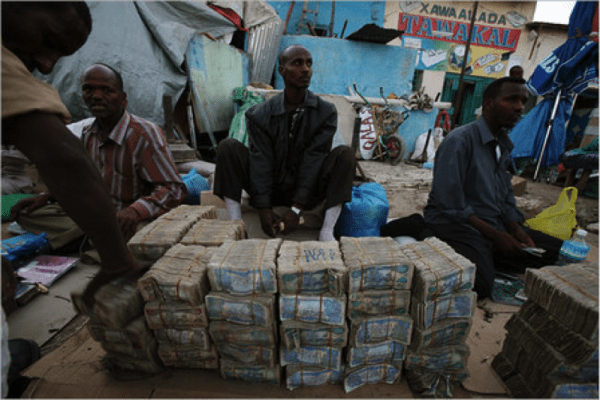 Money changers in Mogadishu, Somalia … buyer beware
Money changers in Mogadishu, Somalia … buyer beware
However, if you cannot resist temptation, exchange your hard earned cash only with people you trust in safe environments. In a few countries, businesses or families are so desirous of hard currency they will make you an offer you can’t refuse. Never change your money on the street where chances are you’re going to be swindled. Tricks include sleight of hand and momentary confusion when large bills are replaced with small denominations. The fold over scam makes it appear you’re getting more than you actually are. Being skilled at basic math and the numerical symbols in other alphabets can reduce your risk, especially where local denominations have 3 or more zeros on them. Otherwise it’s easy to end up with 10%, or 1 less zero worth of bills, of what you should have received.
Perhaps the most likely place you’ll encounter the black market is at border crossings where the touts will encourage you to trade your remaining cash from the land you are leaving for ducats from the country you are entering. Chances are you’ll lose 25% vs official rates, because beyond the border the previous country’s currency is usually worthless and rarely accepted. And if you’re forking over your dollars, there’s a decent chance you’ll be rewarded with out of circulation older bills or shortchanged. Carefully check and count the notes you’re being offered before handing over your Benjamins. The Sudan-Ethiopia and Tanzania-Malawi frontiers are particularly notorious in this regard.
 Iran Rials 100,000 may sound like a small fortune but it’s only worth about $2.50
Iran Rials 100,000 may sound like a small fortune but it’s only worth about $2.50
Other Tips
Certain tourist meccas are infamous when it comes to rip offs and petty crime. Rio de Janeiro, Cuzco Peru (the gateway to Machu Picchu), Luxor Egypt, Nairobi Kenya (“Nairobbery”), Arusha Tanzania (the safari capital), and Cape Town, South Africa are all hazardous in this regard. There and elsewhere, make sure the valuables you have on your person and at your accommodations are extra secure, and avoid any unnecessary displays of wealth (flashing your money, wearing expensive jewelry, carrying unconcealed fancy cameras). As anywhere, if you find yourself wandering into a dubious looking neighborhood, the best idea is to quickly and quietly backtrack to safety.
Big bills can be a hassle. A sidewalk handicrafts seller in Malawi likely won’t be able to take your Kwachas 2000 note for a wooden carving. Withdrawing uncommon amounts should net you some lesser denominations. Always try and keep small bills and coins handy for tips and handouts. Take advantage of chances to change a big bill.
Traveller’s cheques have become increasingly obsolete and difficult to cash. Places that accept them will probably do so reluctantly and charge a hefty fee.
Keep a list of your credit card numbers, bank account numbers, and important phone numbers in your permanent bag. That way, if anything is stolen, you won’t panic over not knowing what you need to know to deal with the problem. Taking photos of valuables also means you have a record that proves you had the items, in case of an insurance claim.
Know How to Bargain
This is the key skill whereby you alone are responsible for determining whether your money is wasted or well spent. In many lands, especially those of Arab culture, haggling is an ancient tradition, one that is expected and marks you as someone worthy of respect or just another tourist to be exploited. Bargaining is a fine art that requires patience, a keen sense of an item’s craftsmanship, material, and thus its worth, and the ability to walk away if your spider senses are warning you off. As they say “a fool and his money are soon parted.” Here are some solid basic cues on how to barter from a pair of fellow cycle tourists.
Outro
The central theme in this blog has been that when it comes to handling your finances in foreign lands, common sense will usually conquer all. Sure there are pitfalls to avoid but that’s all part of life and the grand adventure you’ve embarked on. As our founder Henry Gold writes in his Reflections on Cycling the World , “Relax. Yes, there are bad people, hustlers and opportunists everywhere. (But … it) is in the harshest environments that one encounters the most interesting people and has the most memorable adventures.” Or, in my own words, ‘have faith in the basic goodness of humanity, keep your wits about you and embrace the experience.’
 The Zimbabwe Dollar may be the most devalued currency in history … fortunately it’s no longer in circulation
The Zimbabwe Dollar may be the most devalued currency in history … fortunately it’s no longer in circulation
How to Prepare
An 8 part series to get you ready for your first TDA tour. Click here to read more.
 REGISTER NOW
REGISTER NOW

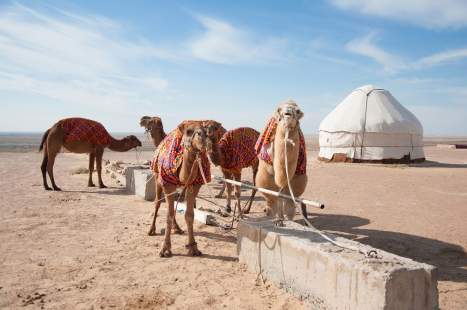

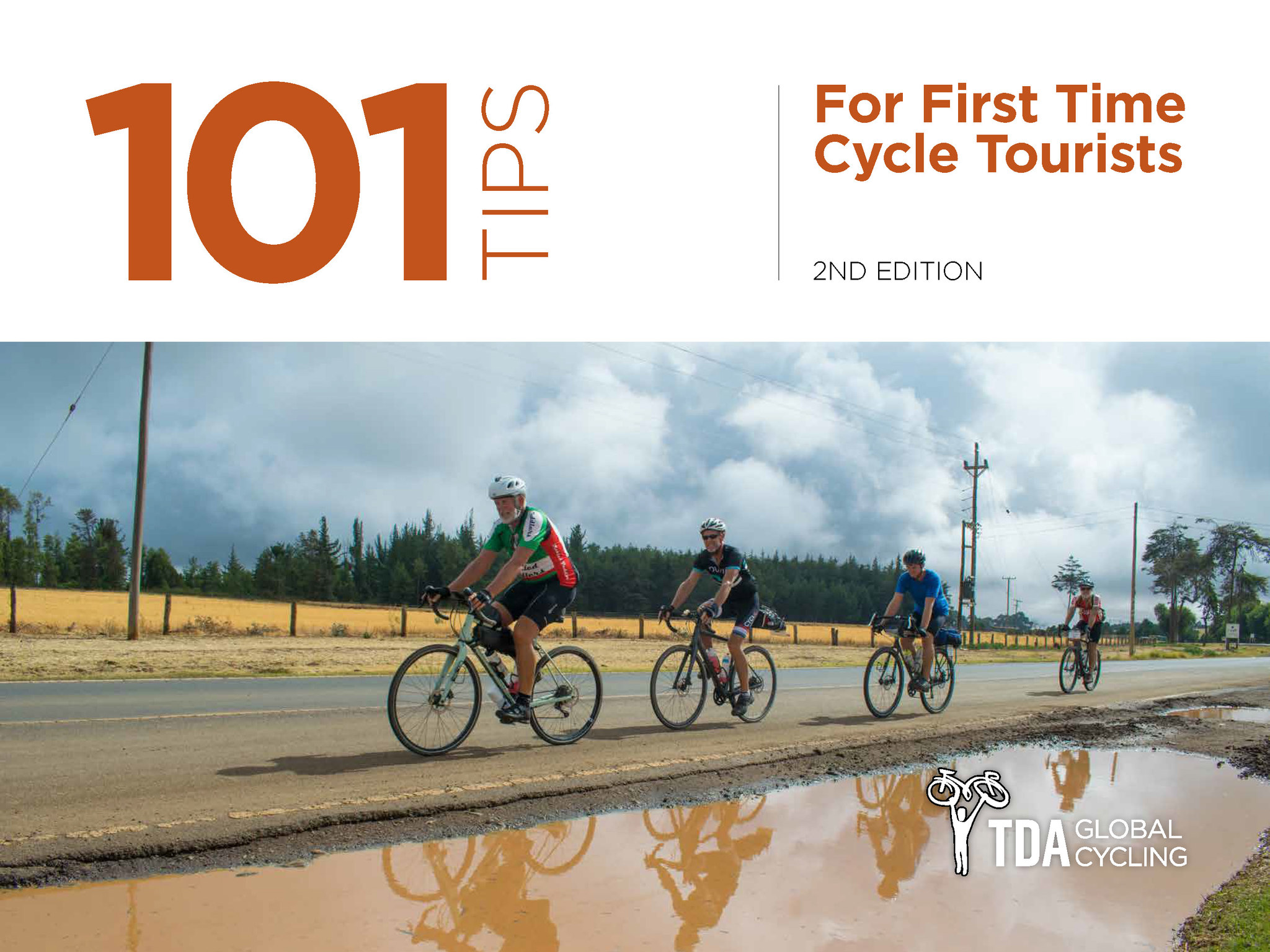
Leave a Comment for "Handling Your Personal Finances On A Cycling Tour"